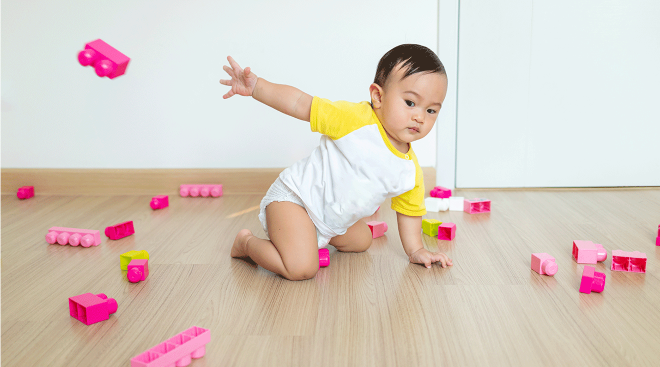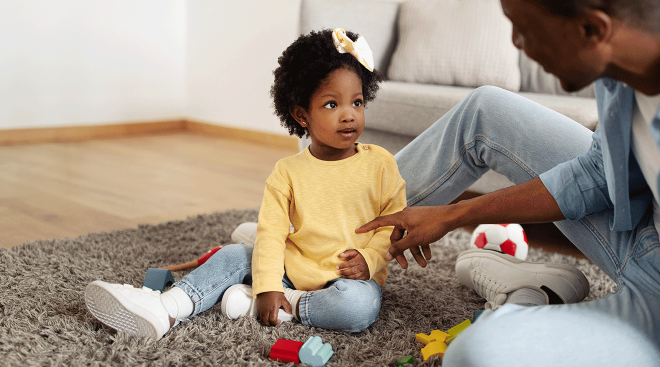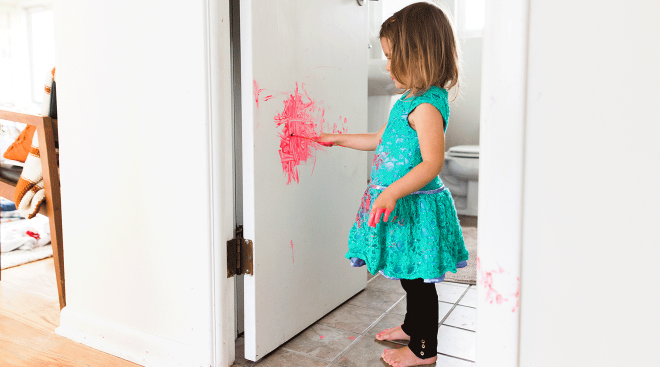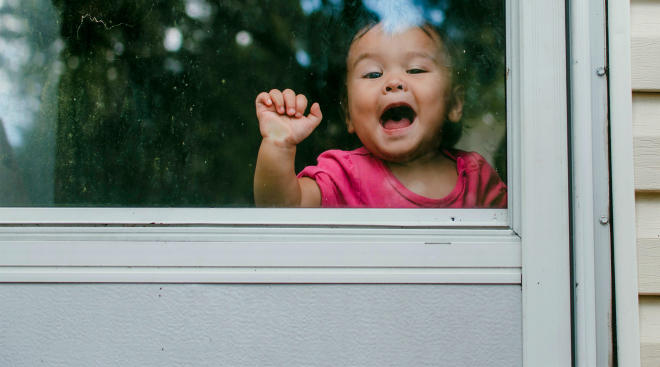How to Help an Angry Toddler
Shakespeare had it all wrong, because hell really hath no fury like an angry toddler. And if you’ve been on the parenting end of one of those tantruming fits, you know what we’re talking about. It’s not surprising that kids express themselves this way. “All of us feel anger—it is a normal human emotion,” says Jephtha Tausig, PhD, a New York City-based clinical psychologist. “We would expect any toddler to feel the full range of human emotions.”
Of course, that doesn’t mean it’s easy dealing with an angry child. So how do you give your little one a lesson in anger management for kids? Here’s why (and how) to get started.
Toddler anger comes down to one word: frustration. And unfortunately, they don’t quite have the language yet to share their frustration effectively with you. “Tantruming usually occurs when a toddler’s emotions overwhelm their ability to speak about them with words, so they act out their experience instead,” Tausig says.
Brain development can also be a factor. “Children’s brains have not yet developed the ability to control emotions, so they tantrum when they become overwhelmed with emotion,” says Nancy Brooks, MS, PsyD, in Lancaster, PA. As their brains develop, they become more able to cope with their emotions—and the tantrums will start to subside.
But how do you know if your toddler’s anger management issues are par for the course—or a reason for concern? Here’s a glimpse at warning signs that you might want to mention to your pediatrician.
•Tantrums that rage for extended periods of time, and the child can’t be consoled. “Tantrums can last anywhere from 2 minutes up to 30 minutes,” says Roseanne Lesack, PhD, BCBA-D, ABPP, a licensed psychologist. “After that, your child should be able to move on or be redirected. If tantrums are consistently lasting over 30 minutes, that would be concerning.”
•Tantrums that extend into the school years. “If tantrums are continuing well past the age of 5 or 6 years old, that could indicate that intervention is needed,” Tausig says.
•Tantrums that involve self-inflicting pain. “Some children may really be injuring themselves,” Lesack says. “It’s pretty normal for children to throw themselves on the ground, kicking and hitting the floor. It’s more concerning if a child is banging their head on the ground or throwing themselves on edges of furniture.”
• If you can’t do much without a tantrum happening. “It is typical for a toddler to have a few tantrums throughout the day,” Lesack says. “But if these are occurring so often that it is impeding you from moving along with your day, it’s concerning."
When you’re facing down the fury of toddler anger—especially (and inevitably) when you’re in a public place—it can be hard to figure out what can help tame your child’s tantrum. Raising your voice could just escalate the situation, and ignoring it may not do much, either.
•Let them know you understand. “Anger is a normal emotion, so parents should validate the child’s feelings and help them build resilience in dealing with not getting their way or whatever triggers anger,” Brooks says. “Get down to the child’s level so you can look them in the face, and state that you understand why they are upset. Then, ask what you can do to help them: Would a hug help?”
•Redirect them. Whether it’s moving them away from what is causing them to lash out, or simply offering them something else they like in lieu of that toy you took away, redirecting their anger in an appropriate way is key. “It’s good to offer strategies: ‘Do you want to hug Mr. Bear right now?’ ‘Do you want to punch this pillow?’ ‘Would you like Mommy to give you a hug?’ so that a child has alternatives from which to choose when they become upset,” Tausig suggests.
Toddler anger management skills don’t happen overnight—it takes consistent work to help your child develop the coping skills necessary to handle frustration with ease.
•Teach them to ask for help. Teaching your kids to ask for assistance could ward off a lot of tantrums before they start. “Often they are frustrated that they can’t get something they want,” Lesack says. “Instead of tantruming, they could say, ‘help.’ It was one of the first words I taught my children.”
•Model good anger management. Could maintaining your own zen help your angry child? If you can show your child healthy ways to keep your cool, you’ll help your child observe and learn by your example. “Parents should model staying calm,” Lesack says. “If your child is upset and having a tantrum, the most important thing for parents to do is remain calm. If a parent begins to lose control, not only does it increase the emotion of the situation and of the child, it also teaches that this is an appropriate response for the child to also use.”
•Talk about anger management after a tantrum has passed. “It is always useful to discuss what might be helpful when everyone is in a calmer frame of mind,” Tausig says. You can share some anger management tactics with your child to use when they’re upset. “The child can implement those suggestions and strategies when anger and presumably other feelings are present."
•Praise them when they’re doing it right. Positive reinforcement can go a long way toward encouraging the behaviors you want—and discouraging the ones you don’t. “Highlight the times when your children are able to handle themselves well,” Lesack says. “By showing children the times they are successful, it can help them to choose that option more often in the future.”
Posted April 2018
Please note: The Bump and the materials and information it contains are not intended to, and do not constitute, medical or other health advice or diagnosis and should not be used as such. You should always consult with a qualified physician or health professional about your specific circumstances.
Navigate forward to interact with the calendar and select a date. Press the question mark key to get the keyboard shortcuts for changing dates.




















































